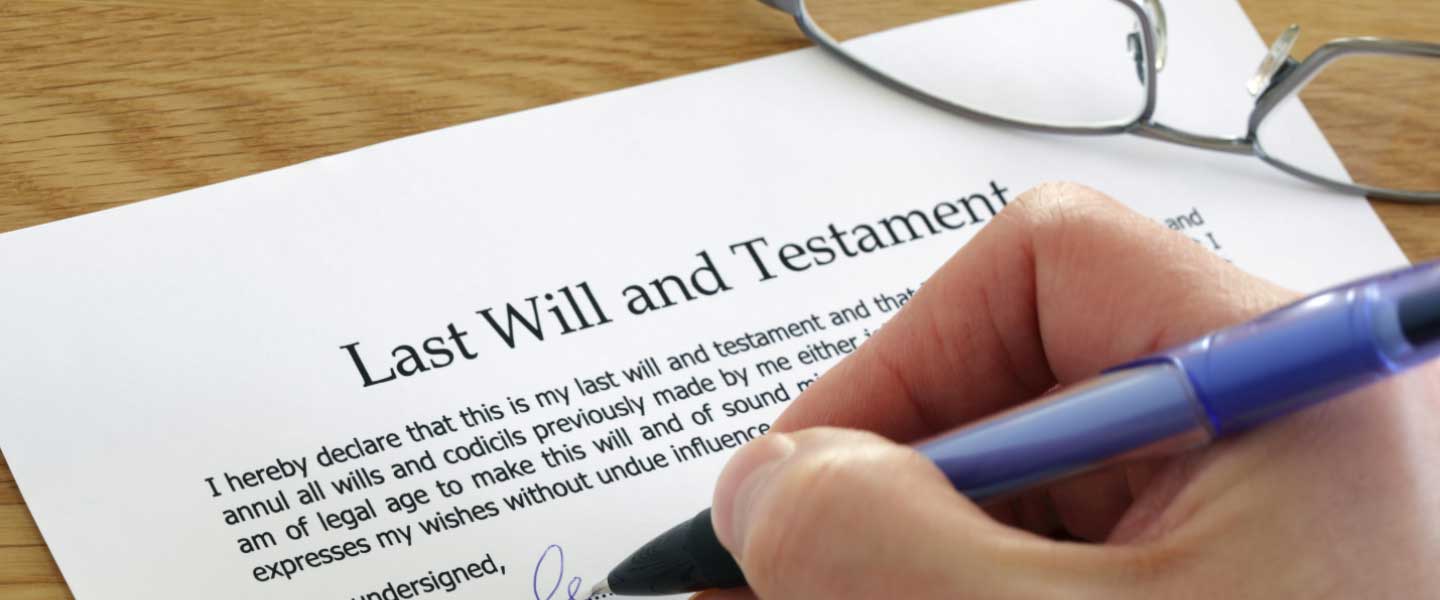Wills
Making a will is one of the best ways to provide long-term security for your loved ones.
Many people find it hard to plan for the unthinkable. But without a will, there is no guarantee your assets are distributed fairly. Our Wilmslow and Bramhall-based wills and probate solicitors can guide you through every step of the process, making sure all your wishes are clearly documented.
Writing a will is simpler than most people imagine. So don’t put it off. Our friendly and reliable wills and probate specialists can take all your needs into account, helping you carry on with peace of mind.
Why use Sinclair Law Solicitors?
- Free 30-minute consultation so we can get to know you and your individual needs
- Jargon-free friendly service
- A solicitor by your side through every step of the process, helping you plan for harder times during easier times
- Transparent pricing with no nasty surprises
- Authorised and regulated by the Solicitors Regulation Authority
- Rated ‘Excellent’ by our clients on Google and Review Solicitors

Your key contact

Jobeth Copping-Barrett, Solicitor & Head of the Private Client Department
Jobeth is passionate about helping people through emotionally difficult times. She prides herself on being compassionate, supportive and open with all her clients.
Jobeth has answered some of the most commonly asked questions below. If you need specific advice, book a free 30-minute consultation with Jobeth today. Call: 01625 526 222.
Wills FAQs
How long does it take to prepare a will?
A simple will can be prepared in as little as two weeks. However, it all depends on your circumstances and the provisions you wish to make. Please speak with us if you have a specific deadline or event you would like to prepare for.
Who should prepare a will?
The simple answer to this is everyone. There is no minimum value of estate or minimum number of assets that a person should have before preparing a will. The only requirements are that you must be at least 18 and have the mental capacity to make and understand the provisions of your will.
When is it particularly important to prepare a will?
We would advise, particularly in the following circumstances, that you consider finalising a new will:
- if you have any assets such as property, investments, savings, cryptocurrency or your own business
- if you have children
- if you live with someone but are not married
What happens if I choose not to prepare a will?
If you pass away without having properly executed a will, your estate (that is all of your personal possessions, assets and property) are distributed according to the rules of intestacy in place at the time of your death.
If you pass away without having prepared a will, there is often much disagreement among the deceased’s loved ones, as to what the deceased would have wanted. This can be avoided by preparing a will.
Where is my will registered and stored?
England and Wales do not have a compulsory system whereby an executed will must be registered or stored with a certain body or authority. However, there are a number of voluntary organisations that offer such a service, if you feel there may be some confusion as to where to find your original will.
Alternatively, if you prepare your will with us, we are currently able to offer a will storage service.
Can my will be contested?
Unfortunately, there is nothing we can write in your will to ensure that a will cannot be contested. However, we can guide you through the process of drafting your new will and making you aware of any potential risks of claims we foresee based on the information you provide us with.
What is an executor?
An executor is the person responsible for carrying out the necessary administration associated with all your assets once you have passed. This includes informing all the necessary financial and government bodies and organising the payment of your debts and liabilities. Your executor(s) applies for the grant of probate and ensures the wishes of your will are carried out as far as possible.
Are my executors liable for my debts?
Your executors do not become personally liable for your debts. These must be paid from your estate before any gifts can be made or any residue (anything that is left) can be shared out to your named beneficiaries. You can also include a clause to ensure that any inheritance tax that falls due is paid from your estate.
Your executors may only become personally liable for your estate, or debts, if they administer your estate incorrectly. Executors can take a number of steps to protect themselves in this regard including that they keep accurate estate accounts and by taking out an executor protection insurance policy.
Do all executors have to apply for probate?
Often more than one executor is named in a will, but not all of the executors have to apply for probate. A maximum of four people can apply to the Probate Registry to prove a will and be named on the grant of probate.
Where two or more people are named as executors of your will, they are called co-executors. Co-executors do not share partial authority over the estate; each person you name as an executor has complete authority over the estate. This means that co-executors must act together in all matters related to settling the estate.
If a person named as an executor of a will does not wish to act or is unable to act, they can choose to renounce their position. This means that they would be resigning their right to be involved in the administration of the estate, allowing someone else to take on the authority in their place. If the executor who wishes to renounce is also a beneficiary, their choice to resign their executorship does not affect their right to inherit.
When an executor is not fully able or willing to participate in the full administration but does not want to lose all authority in the proceedings, they can take ‘power reserved’. You cannot take power reserved if you are the sole executor of the estate, there must be another executor willing and able to act.
Power reserved can be particularly useful when one or more executors do not live in the same country as the deceased and their assets, but other executors do. Taking power reserved would allow the executors in England and Wales to apply for a grant of probate without having to get a signature on certain documents from the executor living abroad, therefore reducing the time and complication of sending documents back and forth between countries.
What happens if two executors of a will disagree?
If two or more executors disagree, it is possible to get an executor removed by the Court if it best serves the estate (in other words, to make sure your possessions are distributed as you wanted). When no substitute executor has been named, the Court also has the legal right to appoint a replacement.
Can I change my will?
Your will is your personal document. You are free to change your will as often as you wish, while you still have the full mental capacity to do so. There is no limit on how long a will must stay in place before you can change it.
In addition, we recommend that you review your will at least every 3-5 years or immediately following any significant change in your circumstances, to ensure your will is still accurate and properly reflects your wishes.
What do I do if English isn’t my first language?
If you wish to prepare a will but English is not your first language, we are still able to help you by arranging the use of an interpreter. Please contact our private client team to discuss your circumstances in more detail.
Do you do home visits?
If you, or a loved one, wish to prepare a new will and prefer to speak with one of our solicitors but are unable to attend one of our offices, please call us to discuss the options available to you.
What is a legacy?
A legacy refers to a specific gift made within your will.
A ‘bequest’ is a gift of money or personal property (such as jewellery or a car).
The term ‘devise’ refers to a gift of real property (such as a house).
The term ‘legacy’ also refers to gifts of personal property but is more widely used to cover all types of gifts, including property, personal items and cash.
A will can list personal possessions, property, specific bank accounts or investments, and state who should receive these. These are specific legacies. A will may also list set amounts of money that the testator wants to leave to different individuals or charities. These are pecuniary legacies.
How much does a will cost?
We can offer a simple single will from £300 (plus VAT) and a simple pair of mirror wills from £500 (plus VAT). For initial advice about making a will or to get a fixed cost quote contact us today.





